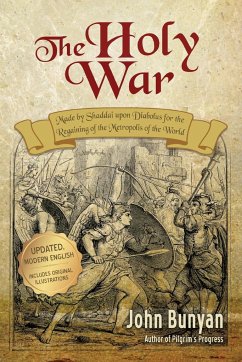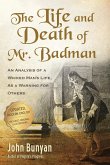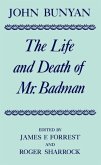More than 100 Original Illustrations Bonus Content: The Life of John Bunyan, by William Brock For we wrestle not against flesh and blood, but against principalities, against powers, against the lords of this age, rulers of this darkness, against spiritual wickedness in the heavens. (Ephesians 6:12) What if you were able to see your life from a spiritual perspective and see the actual reality of the verse above? How does our enemy, Diabolus, plan and carry out his attacks? How do his demons help, and what are their objectives? Why and how must we petition Emmanuel to get His attention and help in this great, holy war? Written four years after The Pilgrim's Progress, John Bunyan followed up with this second allegorical classic, which has touched hearts and minds of readers for generations. The epicenter of this book is the town of Mansoul, its people (such as Conscience, Self-Denial, and Do-Right), and its gates (Eye-gate, Ear-gate, Mouth-gate, Nose-gate, and Feel-gate). The attack by Diabolus and his demons, all of whom have appropriate names, is carefully planned and executed. As still happens to men today, Mansoul fell hard. Emmanuel is of course willing to help, but can only do so on special, seemingly strict terms. As you watch this intense battle unfold, you'll be emboldened to fight with new vigilance, to guard the gates with tenacity, and to rely on Emmanuel's sovereignty like never before. It should be noted that John Bunyan focused not so much on biblical sequence or even perfect accuracy in every aspect. Instead, he honed in specifically on the spiritual battle being waged for each individual soul, filling in other details as needed to create the scenes. In this edition, we updated the text to clarify the meaning of each scene and inserted Bible verses in key areas to bring to light the depth and spiritual meaning of this powerful allegory. About the Author John Bunyan was born in November 1628, in Elstow, England. A celebrated English minister and preacher, he wrote The Pilgrim's Progress (1678), the book that was the most characteristic expression of the Puritan religious outlook. His other works include doctrinal and controversial writings; a spiritual autobiography, Grace Abounding (1666); and the allegory, The Holy War (1682).








